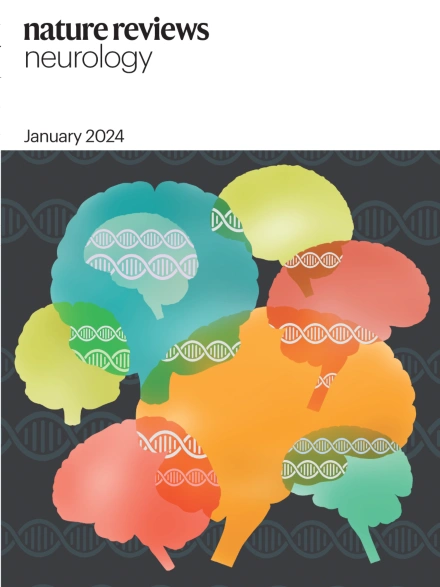Free DNA activates secondary stroke mechanism
IF 28.2
1区 医学
Q1 CLINICAL NEUROLOGY
引用次数: 0
游离 DNA 激活二级中风机制
一项在小鼠模型中进行的研究表明,中风后,循环中的无细胞DNA会导致动脉粥样硬化斑块中的炎性体被激活,从而导致中风复发。在中风诱发的复发性缺血模型中,主要来自中性粒细胞胞外捕获物(NET)的无细胞DNA激活了AIM2炎性体,导致颈总动脉斑块中的炎症加剧。炎症的加剧导致斑块破裂和继发性中风。中风后服用DNase可降低小鼠再次发生中风的风险,这表明这种机制可以作为治疗目标。
本文章由计算机程序翻译,如有差异,请以英文原文为准。
求助全文
约1分钟内获得全文
求助全文
来源期刊

Nature Reviews Neurology
医学-临床神经学
CiteScore
29.90
自引率
0.80%
发文量
138
审稿时长
6-12 weeks
期刊介绍:
Nature Reviews Neurology aims to be the premier source of reviews and commentaries for the scientific and clinical communities we serve. We want to provide an unparalleled service to authors, referees, and readers, and we work hard to maximize the usefulness and impact of each article. The journal publishes Research Highlights, Comments, News & Views, Reviews, Consensus Statements, and Perspectives relevant to researchers and clinicians working in the field of neurology. Our broad scope ensures that the work we publish reaches the widest possible audience. Our articles are authoritative, accessible, and enhanced with clearly understandable figures, tables, and other display items. This page gives more detail about the aims and scope of the journal.
 求助内容:
求助内容: 应助结果提醒方式:
应助结果提醒方式:


